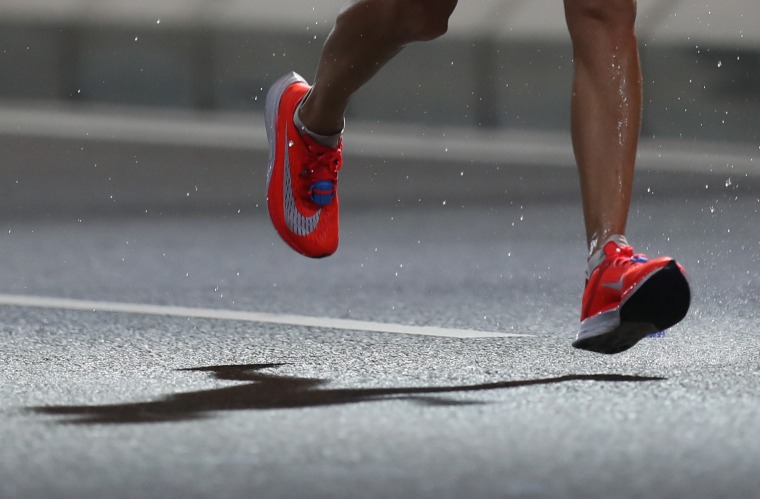World Athletics, the governing body for competitive track and field, ruled Friday that it will not issue a ban on Nike’s controversial Vaporfly shoes. The high-tech footwear has been the subject of a monthslong review amid concern its springy, carbon-plate design gives competitors an unfair advantage.
Nike openly promotes the Vaporfly as "the fastest shoe we've ever made," and Vaporflys were worn last year by 31 of 36 of the top finishers at the six biggest marathons in the world.
But rival shoemakers and many in the running community cried foul, saying the shoe's design amounted to "technological doping." The $250 shoes have foam soles and a carbon fiber plate in each heel to help propel a runner's stride.
Friday's international ruling means athletes will be allowed to race in Vaporflys at this year’s Summer Olympics, which will be broadcast from Tokyo by NBC News. However, the new rules also effectively tamped down any hope that competitive brands could offer their own design for the Olympic Games, noting that a shoe must have been available for sale for four months, starting April 30.
World Athletics also announced it would be undertaking further research to "establish the true impact" of new technology that could provide a performance advantage, noting that "there is sufficient evidence to raise concerns that the integrity of the sport might be threatened by the recent developments in shoe technology."

